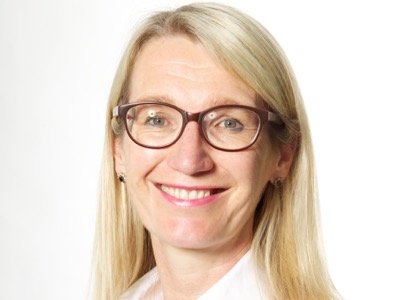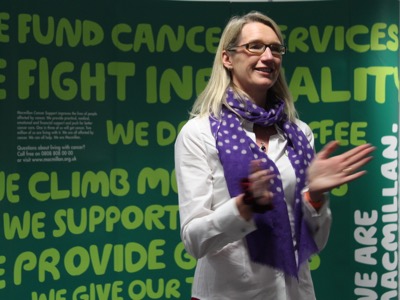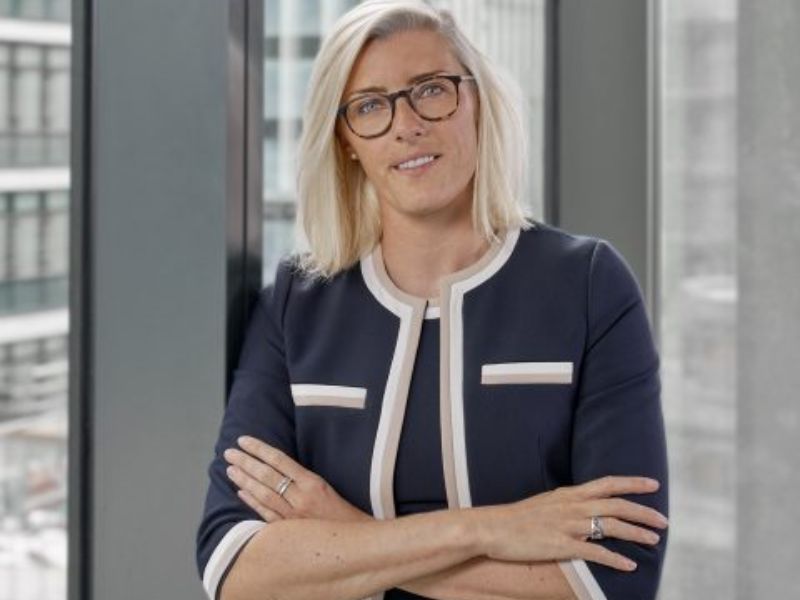 Tell us a bit about yourself, background and what you do currently
Tell us a bit about yourself, background and what you do currently
I am currently Chief Executive of Macmillan Cancer Support, a charity helping people affected by cancer, and which last year reached over 5.8 million people and raised £229million. Macmillan is a big and complex organisation: as CEO I lead a team of over 1,700 staff, 7,900 Macmillan professionals and the tens of thousands of dedicated Macmillan volunteers.
I was appointed chief executive in March 2015 and have been at Macmillan for 15 years in a variety of roles. I began my career in consumer PR before moving in communications for charities including Action for Children and NSPCC, where I was involved in the FULL STOP campaign to end child abuse.
I am passionate about sports, my family, my pet cockerpoo and being part of something with a positive impact.
What inspired you work in the voluntary sector?
After having children I wanted to change career; I wanted to do something more meaningful for an organisation in which I believed, and where I could apply my marketing skills. With this in mind, I volunteered for Action for Children and thought, ‘this is for me!’
What challenges have you had to overcome to get to where you are today?
I’ve not really had many challenges, but I suppose the main thing I have overcome is how to juggle having a meaningful career with three children. The way I’ve done this is to be flexible and find a solution, which for me was a job share.
I’m also a great believer in grabbing every opportunity which comes your way as you never know where it will lead you. I’ve had people sometimes question my judgement taking on projects or jobs, but these decisions have always had positive results.
What are the advantages of being a woman working in the voluntary sector?
I’m not sure there are significant advantages to being a woman, as the sector is a vibrant and inclusive one, full of passionate, talented people delivering on something they believe in.
Although the sector is not necessarily first choice as a career for many people, there are fantastic opportunities. It used to be slightly dominated by people in second careers like me, but now it is a great mix of people from all backgrounds, including young talented people starting out. It’s an exciting shift.
There are a lot of women in the sector and, like me, many of them want to work part time or have a flexible approach after having families. As a sector we are open to this which is great. In fact, flexible working is an attractive option for many people, and Macmillan embraces this as we believe it is great for retaining talent and opens up career opportunities.
What skills do you have to develop to work with your stakeholders across the sectors?
I think the skills you need for my role are common to most sectors, such as understanding budgets, measuring impact and driving strategy, as well as inspiring and uniting your team to realise organisational goals.
I do believe that strong communication skills are essential as you need to be able to understand how to talk to different stakeholders and be ready to adapt. I could be talking to a donor one minute, a politician next, followed by NHS clinician specialists or the media. I really enjoy working with a diverse group of people and this is hugely beneficial to my role.
In the third sector you never have the biggest budget at the table, so you need to be a good influencer and know how best to use your resources.
Does working in the voluntary sector diminish earning potential?
 Quite understandably, people do not get paid as much in this sector; however you can make a good living. Many charities are delivering in a complex environment which need people with a range of professional skill sets to be run in the most efficient and effective way.
Quite understandably, people do not get paid as much in this sector; however you can make a good living. Many charities are delivering in a complex environment which need people with a range of professional skill sets to be run in the most efficient and effective way.
As charities we do not have the financial leverage of bonuses, but perks such as flexible working help the sector create more appealing employment packages. Plus of course there are other rewards: working for an organisation helping people affected by cancer and being part of such a passionate talented team are huge motivators for me. If making money is your main driver though, then this is probably not the right sector.
How do normally start your day and how does it usually end?
I like to start my day with a bit of exercise whether walking, running or cycling to work. At the end of my working day I’ll check my to do list and ensure all priorities are covered, then I’ll sit down with my fabulous assistant and run through my next day. I try to switch off once I’m home. I enjoy spending time with my husband, kids and my dog. You will rarely find me working on the sofa.
How important is it to take responsibility for your own development?
You’ve got to take yourself seriously if you want others to do the same. I’ve never been one to sit back as I think it’s important to grab every opportunity you get. I really encourage people to go out and actively seek it out, whether it’s training, coaching or volunteering. This helps to identify and focus on what you want to do.
I enjoy developing talented individuals and understand the value of supporting, rewarding and inspiring people to help them fulfil their potential. This is why it’s so important to me that Macmillan has a structured learning and development programme for its staff.
Have you benefited from a coach or mentor in your career?
Yes, I’ve been really fortunate to have fantastic formal mentors, as well as amazing informal peer support. One of the perks of job-sharing was that I always had someone with who I could share my concerns, highlighting again the fact that peers are such a good source of support. Plus at Macmillan I have the benefit that I can always count on the advice and opinions of Macmillan’s very experienced board members.
I currently have a great mentor, who is one of our trustees, as well as an experienced CEO and chairman. I have met with him once every couple of months for the past two years. Every couple of months I also work with a formal coach, who has no association to the organisation, so can put a different lens on things.
I think whether you like the concept of a mentor or not, the key thing is to take good quality advice if there is some. The chances are there is someone out there who has had the same or similar problem you are facing and can share advice or learning’s with you, why not use it?
What advice can you give about the benefits of networking?
I think it is really good to network, both formally and informally. Conversations can lead to all sorts of opportunities, plus it’s enjoyable and you can learn an awful lot. In my role it’s important to have strong relationships inside and outside of the sector so networking events are beneficial. You don’t need to be out every night though, be selective about events. Think about the people you want to engage with and have a plan of who you want to talk to. Personally, I like breakfast networking events as they do not eat into family time.
 Who are your female role models and why?
Who are your female role models and why?
After watching the Olympics this summer I’m inspired by a lot of sportswomen The British female hockey team were amazing, so passionate and committed, on top of having other careers or being in full-time education. The captain had her jaw broken during a game at the last Olympics but didn’t let that stop her leading the team to win a bronze medal, and an Olympic gold in 2016. I was also so impressed listening to the goalkeeper about how she studied her opponents to know who would be shooting and understand their style, such great attention to detail and passion.
It’s always difficult to pick out individual role models though as there are amazing women all around us. I recently met a Macmillan nurse in Northern Ireland and was truly inspired by her. You don’t need to be a prime minister or a person in charge, normal people doing extraordinary things truly inspire me.
What are your plans for future?
Key for me is ensuring the Macmillan is fit for the current and future needs of people affected by cancer. That people are aware of how we can help them and they can access our help easily, getting the best support for them at the time when they need it.
It is also really important for me to maintain a good work life balance, and of course make the British female hockey team for Tokyo 2020!








